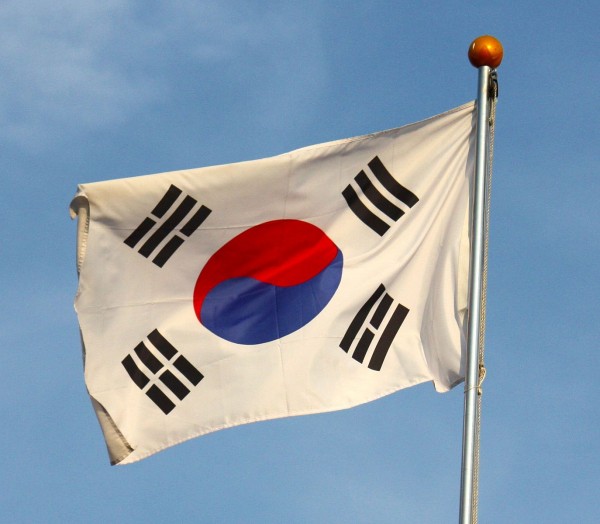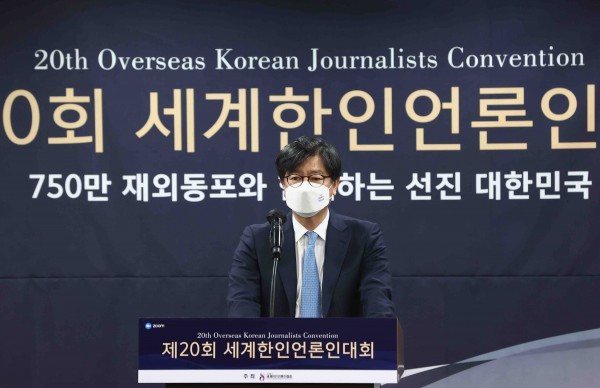His Excellency Roh Moo-hyun
President of the Republic of Korea
Cheong Wa Dae (Blue House)
Seoul
Republic of Korea
Fax: +822 770 2209 / 770 2549
Vienna, 11 January 2005
Your Excellency,
The International Press Institute (IPI), the global network of editors, leading journalists and media executives, is writing to you to express its deep concern regarding the proposed amendment to the Registration, etc. of Periodicals Act, known as the Act Governing the Guarantee of Freedom and Functions of Newspapers, Etc. (“GFN”), as well as the so-called Newspaper and Press Arbitration Law (“NPL”).
If passed into law, IPI strongly believes that these bills will have an extremely negative impact upon both press freedom and South Korea’s reputation as a democratic nation founded on the principles of a free market system.
Article 17 of the GFN, for example, states that a newspaper whose market share exceeds 30 percent, or three dailies (or fewer) whose combined market share exceeds 60 percent, is deemed a monopoly under the Fair Trade Law.
Since this provision applies tighter restrictions than those stipulated in the existing Fair Trade Law – which put a 50-percent ceiling on the shares that can be owned by a single firm and a cap of 75 percent for three firms – critics have denounced the limitations in the GFN as unconstitutional and an infringement of basic commercial rights, such as equality and trade, which are guaranteed by the Constitution.
While it might be appropriate to raise concerns regarding broadcasters and their market share, as well as the problems regarding cross-ownership, the attempt to cap a newspaper’s market share is both unusual and unorthodox. Due to the impact of the moving image and the power of television advertising, there have always been fears over a broadcaster’s market share. However, the market shares of newspapers – as a different form of media – have traditionally been excluded from such considerations.
These legal provisions restrict readers’ rights to freely subscribe to the main South Korean dailies and appear to be an attempt at suppressing those media – organisations critical of the incumbent government.
As a result of Article 17, newspapers will be unfairly fined for circumstances outside of their control. Moreover, since such fines may amount to 3 percent of a newspaper’s total sales, the danger of a politically motivated “bankruptcy” of a newspaper is a distinct possibility.
The legal provisions under Article 8 of the GFN state that the readers should be given a chance to participate in the decision-making process concerning editing and production. In addition, Article 10 states that owners of periodicals should hold meetings devoted to the protection of readers’ interest and reflect the results in their periodicals.
While these provisions appear to be voluntary, IPI believes they remain problematic. The reason for this is that their inclusion in a law constitutes clear political pressure and will consequently undermine the right of editors, journalists and publishers to express their views and opinions without interference. A newspaper’s approach to news is determined internally, not by readers, who can choose freely to read or not to read the finished product.
Article 37 of the GFN creates a newspaper distribution agency established in order to guarantee the people’s right to choose from a wide media selection.
While the article is vague on this point, it is highly probable that the agency will be both prejudiced and political in nature. To ensure fairness, and to prevent a possible conflict of interest, such an agency – as well as the Newspaper Development Council and the management of the Newspaper Development Fund – must be at arm’s length from the government. Since this is not guaranteed in the GFN, IPI fears that the agency will be used to assist press supportive of the government.
The government funding of a central distribution system is strongly reminiscent of state assistance in the former communist countries of Central and Eastern Europe, where such “assistance” was undertaken to ensure the survival of certain newspapers while guaranteeing the disappearance of others.
IPI also believes, in all likelihood, that the Article will conflict with the constitutional principle of “equality before the law”.
Finally, Article 13 of the GFN states: “Those who have been sentenced to complete imprisonment…and those who are on probation, cannot become publisher”. However, the existing law does not include those who are on probation. With this new provision it appears that the GFN is directly seeking to penalise the “victims” of the politically motivated tax inspections of 2001.
The second bill, the so-called Newspaper and Press Arbitration Law (“NPL”) empowers the Press Arbitration Commission (“PAC”) to examine infringements of both the interests of the state and an individual’s legal interests at its own discretion, and to accept third-party applications in the absence of a direct petition from a victim.
The provision that third parties, who are not directly concerned with the complaint, can be involved is undemocratic in nature. If third parties, including civic groups, are able to apply to the PAC for remedies, there is a real danger of a deluge of applications resulting in an unfair curtailment of media activity.
In addition, the manner in which the commission will define and examine “state interests” is difficult, if not impossible, to imagine as judgments are often subjective affairs depending on political affiliations and the relationships between the ruling and opposition parties, the academic world and the press, and between management and labour, among others.
It is also feared that the PAC might become a “press inspection agency” with the state-granted power for determining the nature of “state interests”.
The provision that enables the PAC to deliberate on cases involving compensation for civil damages, which in fact should be determined by a judge, could be interpreted as unconstitutional, if it is found to have excessively infringed the rights of the judiciary.
To make such rules mandatory, especially at a time when the media are engaged in resolving such disputes voluntarily, and to award fines as large as W 30 million – the highest possible fine under the current law – is viewed by many as an excessive sanction that comes close to criminal punishment.
In conclusion, IPI’s analysis reveals that these two bills are in several respects contrary to both the South Korean constitution and international standards on press freedom. Indeed, it leaves IPI with the impression that the true intent behind the bills is a “desire for control” of the media.
With the above in mind, IPI calls on Your Excellency to refuse to sign these bills into law.
We thank you for your attention.
Yours sincerely,
Johann P. Fritz
Director


